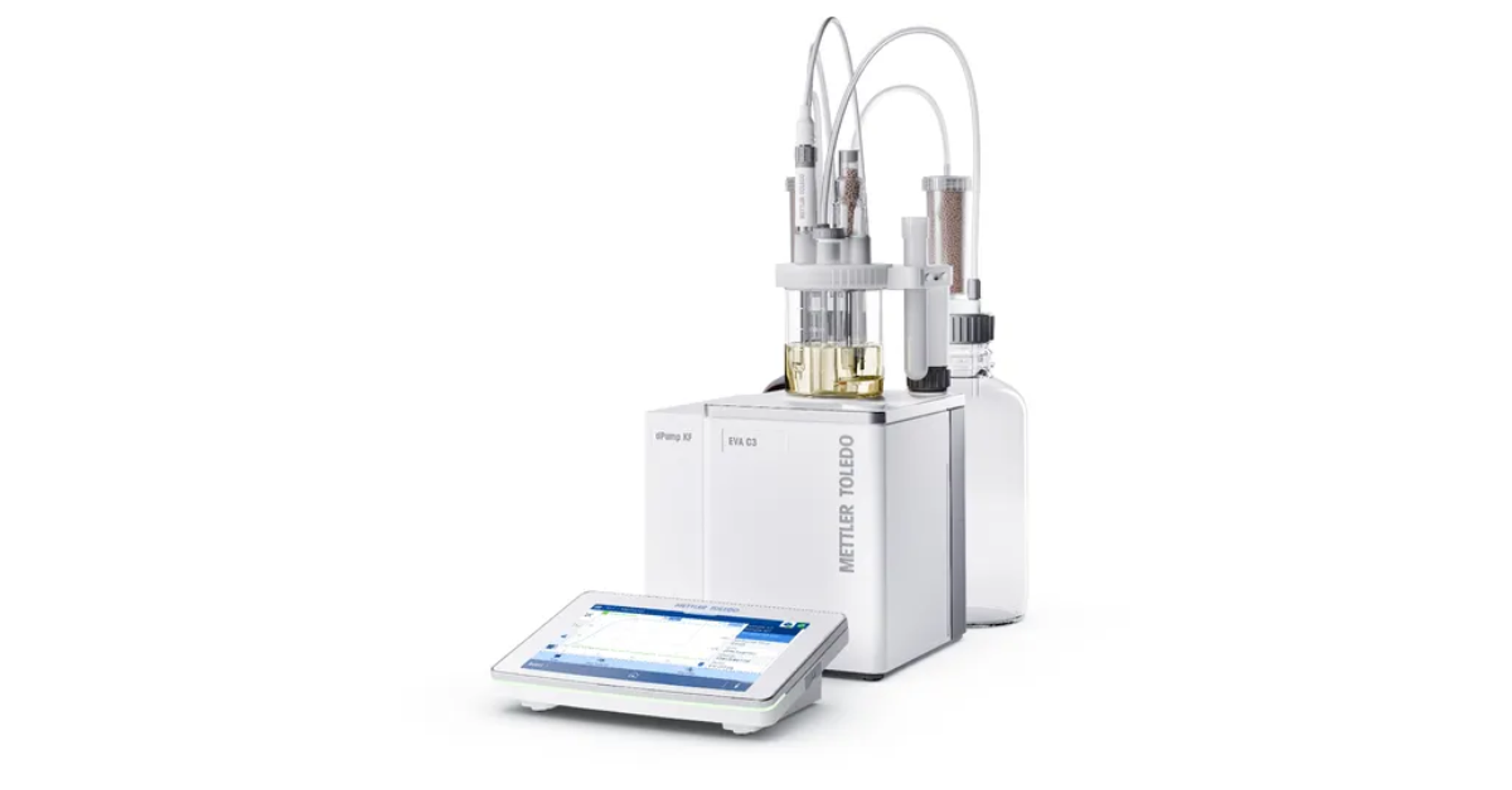Hydranal powers safer, smarter water analysis
See how Honeywell and METTLER TOLEDO collaborated to unlock new frontiers for Hydranal reagent formulation via automated titration
8 Sept 2025

Roman Neufeld, Senior Research Scientist in the Hydranal department, Honeywell
Since its development in 1935, Karl Fischer (KF) titration has become a cornerstone of analytical chemistry for accurately determining water content across industries like food, cosmetics, chemicals, and pharmaceuticals. While the original method relied on pyridine-based reagents, which are known for their unpleasant odor and toxic effects, decades of innovation have led to safer, more efficient and stable alternatives.
In the 1990s, Hydranal advanced the field by introducing halogenated hydrocarbon-free reagents, followed by the development of ethanol-based E-type reagents, which offered greater versatility. Building on this progress, Honeywell launched the NEXTGEN FI-type reagents in 2020 — the first imidazole-free formulations for both volumetric and coulometric KF titration — setting a new benchmark for safety and environmental performance in the lab.
Most recently, in response to the growing global demand for lithium-ion batteries, which require precise moisture analysis, Honeywell’s Roman Neufeld developed the first alcohol- and imidazole-free KF coulometric reagents, enabling accurate water determination in alcohol-sensitive electrolyte samples.
“I specialize in KF water determination methodology and lead the development of the Hydranal KF reagents, which are essential for precise water determination in a variety of applications,” explains Neufeld. “My role also includes supporting the global customer base, where I address technical queries and develop practical applications for KF titration, which is vital for ensuring the quality and performance of many products."
Improving titration through cross-industry innovation
Honeywell and METTLER TOLEDO have worked in partnership for many years, creating a range of high-quality Hydranal KF reagents and METTLER TOLEDO KF titrators that work together reliably and with precision.
“These advancements have been achieved through collaboration with our device partners, including METTLER TOLEDO, and help us to meet and exceed the evolving needs of our customers in KF titration solutions,” says Neufeld.
Teams from both companies participate actively in the collaboration by testing prototypes and submitting improvement suggestions before instruments and reagents reach the global market. The Hydranal development team tests new reagent formulations on METTLER TOLEDO titrators in its development lab and uses the findings to adapt the reagents to the specific requirements of the devices. The newly developed reagents are then sent for evaluation to the application team at METTLER TOLEDO. In turn, METTLER TOLEDO takes a similar approach when it develops new KF devices.
“One of the most crucial parts of our collaboration is the close and direct communication that exists between the Honeywell and METTLER TOLEDO technical application teams and our end users. This allows us to address specific customer inquiries and develop tailored solutions that align precisely with their needs,” says Neufeld. “We exchange information on technical inquiries, marketing activities, and more. This comprehensive support and dedication to our users' success are essential factors that contribute to the success of our partnership.”
Demonstrating innovation in titration
Since its launch, Neufeld and his team have beta tested the EVA coulometric titrator from METTLER TOLEDO. This process involved direct titration of liquid Hydranal Water Standards with differing water amounts, as well as indirect titrations of solid Hydranal Water Standards using the EVA coulometer connected to METTLER TOLEDO’s InMotion™ KF Pro Oven Autosampler.
“Unpacking the new cubic EVA titrator evoked childhood memories of unboxing my first gaming console, the Nintendo® GameCube™, and meant that I was excited to be involved right from the start,” Neufeld enthuses. “Assembling the titrator was straightforward and seamless, and it was interesting to see the new developments.” Both the generator and indication electrodes are now digital. The titration vessel features an updated plastic cap with an additional opening for the KF oven's carrier gas tube, making it convenient for direct titrations without needing to remove the gas tube. Additionally, the larger septum area allows needle insertion at various locations, effectively preventing cross-contamination of samples.
In beta testing, Neufeld found the graphical user interface easy and intuitive to navigate, and this made the process of creating initial titration methods and making modifications simple and straightforward.
“Remarkably, I did not require any assistance with system navigation — kudos to the GUI developers for their outstanding work,” says Neufeld. “The more sensitive digital indication electrode enabled faster titrations, and I achieved accurate and reproducible results in both direct and indirect titrations of liquid and solid water standards.”
Remarkably, I did not require any assistance with system navigation — kudos to the GUI developers for their outstanding work.
Roman Neufeld, Senior Research Scientist in the Hydranal department Honeywell
The future of titration technology
As in many areas of analytical chemistry, automation and digitization are expected to play a crucial role in the evolution of titration technology. Automating both sample handling and the titration process can minimize human error, an important step in enhancing reproducibility.
Another possible step forward could be incorporating an internet connection into KF systems to facilitate easier connectivity, data sharing and remote monitoring. This has potential to improve lab management and support more informed decision-making.
“At Honeywell, we are committed to further innovations for Hydranal reagent formulations, such as enhancements to sensitivity, safety, and environmental sustainability. Other potential innovations could include the formulation of selective reagents that accurately measure moisture content in complex samples as well as having lower toxicity and less of an environmental impact,” Neufeld concludes.
Acknowledgements:
Hydranal is part of the Advanced Materials segment of Honeywell, which will soon be spun off into a new entity called Solstice Advanced Materials. Hydranal customers can expect a continued commitment to delivering high-quality products and services that meet the evolving needs of the industry.

